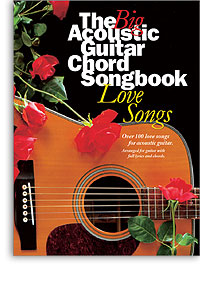
|
• SPARTITI, LIBRI DI MUSICA
SPARTITI NOVITA'
SPARTITI GRUPPI e PERSONALITA'
SPARTITI ACUSTICA
SPARTITI ACCORDATURE APERTE
SPARTITI OPER TUNINGS/BOTTLENEK
SPARTITI BLUES
SPARTITI COUNTRY BLUES
SPARTITI CLASSICA
SPARTITI CLASSICA e...
SPARTITI NATALE/SACRA
SPARTITI NEO-CLASSICO
SPARTITI FLAMENCO
SPARTITI LATIN
SPARTITI COUNTRY / BLUEGRASS
SPARTITI BANJO, MANDOLINO e...
SPARTITI BASI '50
SPARTITI BASI '60
SPARTITI BASI '70
SPARTITI BASI '80
SPARTITI BASI '90
SPARTITI BASI '00
SPARTITI BASI BLUES
SPARTITI BASI COUNTRY
SPARTITI BASI JAZZ
SPARTITI JAZZ
SPARTITI JAZZ METODI
SPARTITI GYPSY JAZZ, SWING, MANOUCHE
SPARTITI METODI PER CHITARRA
SPARTITI PIANO E TASTIERE
SPARTITI ROCK 'N' ROLL
SPARTITI RHYTHM and BLUES, SOUL, DISCO, FUNK
SPARTITI RACCOLTE '70
SPARTITI RACCOLTE '80
SPARTITI RACCOLTE '90
SPARTITI RACCOLTE '00
SPARTITI RACCOLTE FILM/TV
SPARTITI SOLOING SCALE MODI ARPEGGI
SPARTITI ARMONIA, ACCORDI
SPARTITI DI TECNICA
SPARTITI TECNICA TAPPING
LIBRI DI ELETTRONICA
LIBRO DI AMPLIFICAZIONE E IL SETUP
LIBRI SUL SUONO E GLI EFFETTI
LIBRI DI LIUTERIA
MONOGRAFIE, BIOGRAFIE DI CHITARRISTI
SPARTITI METODI PER BASSO
SPARTITI METODI PER BATTERIA
SPARTITI METODI PER ARMONICA
LETTERATURA
• VIDEO/DVD
• CHITARRA FLAMENCO, CLASSICA, ACCESSORI
|
|
|
 |
SPARTITI GRUPPI e PERSONALITA' |
1 - 2 - 3 - 4 - 5 - 6 - 7 - 8 - 9 - 10 - 11 - 12 - 13 - 14 - 15 - 16 - 17 - 18 - 19 - 20 - 21 - 22 - 23 - 24 - 25 - 26 - 27 - 28 - 29 - 30 - 31 - 32 - 33 - 34 - 35 - 36 - 37 - 38 - 39 - 40 - 41 - 42 - 43 - 44 - 45 - 46 - 47 - 48 - 49 - 50 - 51 - 52 - 53 - 54 - 55 - 56 - 57 - 58 - 59 - 60 - 61 - 62 - 63 - 64 - 65 - 66 - 67 - 68 - 69 - 70 - 71 - 72 - 73 - 74 - 75 - 76 - 77 - 78 - 79 - 80 - 81 - 82 - 83 - 84 - 85 - 86 - 87 - 88 - 89 - 90 - 91 - 92 - 93 - 94 - 95 - 96 - 97 - 98 - 99 - 100 - 101 - 102 - 103 - 104 - 105 - 106 - 107 - 108 - 109 - 110 - 111 - 112 - 113 - 114 - 115 - 116 - 117 - 118 - 119 - 120 - 121 - 122 - 123 - 124 - 125 - 126 - 127 - 128 - 129 - 130 - 131 - 132 - 133 - 134 - 135 - 136 - 137 - 138 - 139 - 140 - 141 - 142 - 143 - 144 - 145 - 146 - 147 - 148 - 149 - 150 - 151 - 152 - 153 - 154 - 155 - 156 - 157 - 158 - 159 - 160 - 161 - 162 - 163 - 164 - 165 - 166 - 167 - 168 - 169 - 170 - 171 - 172 - 173 - 174 - 175 - 176 - 177 - 178 - 179 - 180 - 181 - 182 - 183 - 184 - 185 - 186 - 187 - 188 - 189 - 190 - 191 - 192 - 193 - 194 - 195 - 196 - 197 - 198 - 199 - 200 - 201 - 202 - 203 - 204 - 205 - 206 - 207 - 208 - 209 - 210 - 211 - 212 - 213 - 214 - 215 - 216 - 217 - 218 - 219 - 220 - 221 - 222 - 223 - 224 - 225 - 226 - 227 - 228 - 229 - 230 - 231 - 232 - 233 - 234 - 235 - 236 - 237 - 238 - 239 - 240 - 241 - 242 - 243 - 244 - 245 - 246 - 247 - 248 - 249 - 250 - 251 - 252
|